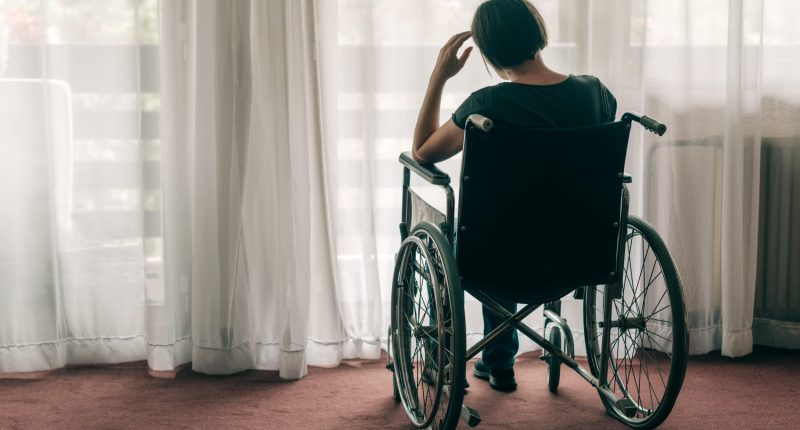MILLIONS of households on PIP will get a pay rise of £600 a year from today as benefit rates go up.
Personal Independent Payments (PIP) is among the benefits getting a hike in 2024.
Benefit payments will rise by 6.7% from today, in line with the Consumer Price Index (CPI) level of inflation for September 2023.
But remember, the exact amount your PIP payments will rise by will depend on whether you qualify for extra elements and how your medical condition affects your life.
Plus the dates you will see your benefit payments increase depends on when you normally get paid.
For example, if you usually get paid on the fourth day of the month, you won’t get a pay boost until May 4.
READ MORE ON BENEFITS
PIP helps with the extra cost of living for those with illnesses or disabilities.
The payments are made up of two parts for living and two for mobility.
Plus, for each component, there is a standard and an enhanced rate.
How much you get also depends on how your condition affects you.
Most read in Money
Here is how much each is increasing by:
Daily Living Component
- Standard: £72.65 per week (up from £68.10) – increase of £236.60 a year
- Enhanced: £108.55 per week (up from £101.75) – increase of £353.60 a year
Mobility Component
- Standard: £28.70 per week (up from £26.90) – increase of £93.60 a year
- Enhanced: £75.75 per week (up from £71) – increase of £247
PIP claimants can only claim one of each of the elements.
The increases mean you qualify for the enhanced daily living and mobility components of PIP, you’ll get £184.30 a week, £798.63 a month and £9,583.60 a year.
This is an increase of £11.55 a week, £50.05 a month and £600.60 a year.
If you get the standard components of both you’ll get £101.35 a week, £405.40 a month, and £5,270.20 a year.
Personal Independence Payment (PIP)

Here’s everything you need to know about claiming PIP
Who can get PIP?
PIP is available to those aged 16 or over who have not yet reached the state pension age – which is currently 66.
You must have lived in England or Wales for at least two out of the last three years, and be in one of these countries when you apply.
The process is different in Northern Ireland, and there are additional rules if you live abroad or if you’re not a British citizen.
In Scotland, you will need to apply for Adult Disability Payment (ADP) instead.
You must also have a health condition or disability where you either have had difficulties with daily living or getting around – or both – for three months.
And, you expect these difficulties to continue for at least nine months (unless you’re terminally ill with less than 12 months to live).
Difficulties with daily living can include:
- Preparing or eating food
- Washing, bathing and using the toilet
- Dressing and undressing
- Reading and communicating
- Managing your medicines or treatments
- Making decisions about money
- Engaging with other people
You can claim PIP at the same time as other benefits, except the armed forces independence payment.
If you receive constant attendance allowance you will receive less of the daily living part of PIP.
If you get war pensioners‘ mobility supplement you will not get the mobility part of PIP.
What is PIP?
HOUSEHOLDS suffering from a long-term illness, disability or mental health condition can get extra help through personal independence payments (PIP).
The maximum you can receive from the Government benefit is £172.75 a week.
PIP is for those over 16 and under the state pension age, currently 66.
Crucially, you must also have a health condition or disability where you either have had difficulties with daily living or getting around – or both- for three months, and you expect these difficulties to continue for at least nine months (unless you’re terminally ill with less than 12 months to live).
You can also claim PIP if you’re in or out of work and if you’re already getting limited capability for work and work-related activity (LCWRA) payments if you claim Universal Credit.
PIP is made up of two parts and whether you get one or both of these depends on how severely your condition affects you.
You may get the mobility part of PIP if you need help going out or moving around. The weekly rate for this is either £26.90 or £71.
While on the daily living part of PIP, the weekly rate is either £68.10 or £101.75 – and you could get both elements, so up to £172.75 in total.
You can claim PIP at the same time as other benefits, except the armed forces independence payment.
Make a claim by calling the Department for Work and Pensions (DWP) on 0800 917 2222.
Which conditions could be eligible?
There is not a definitive list of medical conditions which could make you eligible for PIP as it varies massively.
Crucially, it’s important to bear in mind that being diagnosed with the condition doesn’t automatically qualify you for PIP.
Instead it depends on how the condition affects your daily life and your ability to do daily tasks.
Here are 25 examples of conditions that could qualify:
- Asbestosis
- Asthma
- Bronchiectasis
- Chronic bronchitis
- Chronic obstructive pulmonary disease (COPD)
- Cystic fibrosis
- Emphysema
- Empyema
- Extrinsic allergic alveolitis
- Fibrosing alveolitis
- Granulomatous lung disease and pulmonary infiltration
- Heart and lung transplantation
- Lung transplantation
- Pleura
- Pleural effusion
- Pneumoconiosis
- Pneumonia
- Pneumothorax
- Pulmonary embolus
- Pulmonary fibrosis
- Pulmonary fibrosis – other/type not known
- Sarcoidosis
- Silicosis
- Sleep apnoea – obstructive
- Upper respiratory tract – other diseases of/type not known
Do I have to be in work to get PIP?
No, you can get PIP whether you’re working or not.
You can also claim PIP if you’re already getting limited capability for work and work-related activity (LCWRA) payments if you claim Universal Credit.
Households eligible for LCWRA payments usually have a health condition which prevents or limits their ability to work.
How do I apply for PIP?
You can make a new PIP claim by calling the Department for Work and Pensions (DWP) on 0800 917 2222.
This is the government department tasked with paying out benefits to millions every year.
There are also other ways to claim if you find it difficult to use a telephone. See Gov.UK for more information.
When you claim, you’ll need:
- Your contact details
- Date of birth
- National Insurance number
- Bank or building society account number and sort code
- Your doctor or health worker’s name, address and telephone number
- Dates and addresses for any time you’ve spent abroad, in a care home or hospital
Someone else can call on your behalf, but you’ll need to be with them when they call.
You’ll then be sent a form to fill in, after which you’ll be invited for an assessment or your health or social care worker will be asked for information.
After this, you’ll be sent a letter telling you if your claim has been successful.
You can read Citizens Advice’s help on preparing for an assessment.
How do I appeal or overturn a decision on PIP?
If your application for PIP has been turned down or you don’t think you’ve been offered enough cash you can appeal the decision.
You first need to ask for a “mandatory reconsideration notice” – this is where the DWP looks at the decision again.
If you are still unhappy with this outcome, you can then appeal to an independent tribunal.
You must send your appeal form in within one month of the date shown on the mandatory reconsideration notice.
Be warned that it usually takes up to six months for an appeal to be heard by the tribunal.
READ MORE SUN STORIES
Meanwhile, over 100,000 households have had their PIP decision overturned after being originally rejected from claiming the benefit.
Plus, millions on benefits and the state pension are set for a bumper pay rise from today.
Do you have a money problem that needs sorting? Get in touch by emailing [email protected].
Plus, you can join our Sun Money Chats and Tips Facebook group to share your tips and stories










